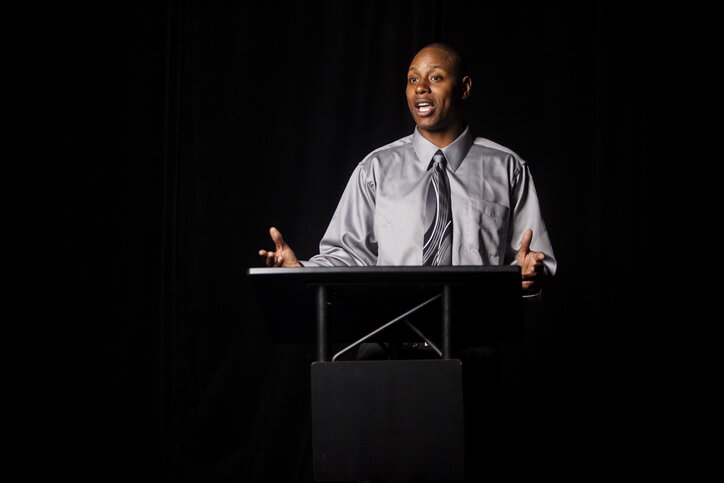Five Tried-and-True Tips for Selecting a Funeral Celebrant
Choosing a person to officiate the funeral ceremony for a departed family member is a critically important decision.
Because they will be the voice honoring your loved one, you should select an individual who is trustworthy, reliable, and with whom you feel at ease sharing your family’s history and personal stories. Fortunately, there are many ways to approach finding someone you are comfortable with at this challenging and emotional time.
Here are some important things to know about the funeral celebrant's role and helpful pointers for choosing the perfect person for the job.

What does the funeral officiant do?
The officiant, also called the funeral celebrant, is responsible for organizing and structuring the service, including delivering the eulogy, leading any religious elements, and informing guests of post-ceremony events, such as the burial, reception, or scattering of ashes. Each celebrant will also bring their own style and personalization to the service, and the type of ceremony you want may influence the selection process. A formal, traditional funeral is not right for everyone, and not all services are religious. For example, you might be considering an informal memorial service or an ebullient celebration of life. The officiant you choose should reflect the type of service you plan to hold for your loved one.
Technically, anyone can be an officiant.
Unlike a wedding, there is no legal requirement for certification or professional experience to officiate a funeral. If you, a family member, or a friend wants to be the guiding voice of the service, you can do so. However, hiring someone with experience leading funerals and memorials has advantages. They will most likely have a structure in mind, and you can work with them to customize the ceremony so that it feels personalized to your loved one.
You have a number of options at your disposal.
If your loved one was religious, your choice of officiant should reflect those beliefs. This will usually mean a pastor, priest, rabbi, imam, or another member of the clergy. They will be well versed in the aspects of laying people to rest in accordance with their religious beliefs and will be able to advise you on traditions, readings, and hymns. The funeral director will usually be available as an officiant for services held at a funeral home. Because they are accustomed to working with grieving family members, funeral directors are a popular non-religious choice. In recent years, more families have been turning to certified celebrants. They are typically trained in funeral planning, family facilitation, presentation skills, and emotional support. Or, you might have someone else in mind, such as a friend or family member. If you’re leaning toward this option, bear in mind that it can be extremely difficult for someone close to the deceased to lead the service. Emotions will be high, and grief is unpredictable, so even the most practiced speaker may become overwhelmed at the moment. For those reasons, finding someone outside your immediate circle of grieving friends and family is advisable.
Get aligned from the start.
As you go through your selection process, it’s important to ask the right questions and agree on key elements up front. Consider things like:
- What pre-funeral planning needs will be required?
- What types of questions will they be asking the family?
- Are they aligned with the beliefs of the departed if the ceremony will be religious in nature?
- Do they follow a certain schedule or structure?
- Are they flexible and willing to collaborate with you?
The cost can vary widely.
Friends or family will often be willing to officiate for free. However, they may not have the experience or skills to make the service flow seamlessly. Funeral directors and professional celebrants generally charge from $300 to $500. Clergy members may or may not charge a fee. Many will request a donation to their religious organization or house of worship in lieu of payment.
If you have additional questions or want more specifics about the duties of the funeral celebrant, please reach out to us. Our caring funeral directors are always here to assist you in your time of need.
About Vaughn Greene Funeral Services: For more than 25 years, Vaughn Greene Funeral Services has been providing a ministry of care to Baltimore’s African American community. As a leading local, minority- and family-owned provider, we promise to provide our highest level of service and respect to families who entrust us to honor their loved ones. For more information about our funeral, cremation, memorial, and repast services, please call us at 410.655.0015 or visit us online at https://vaughncgreene.com/.










Comments